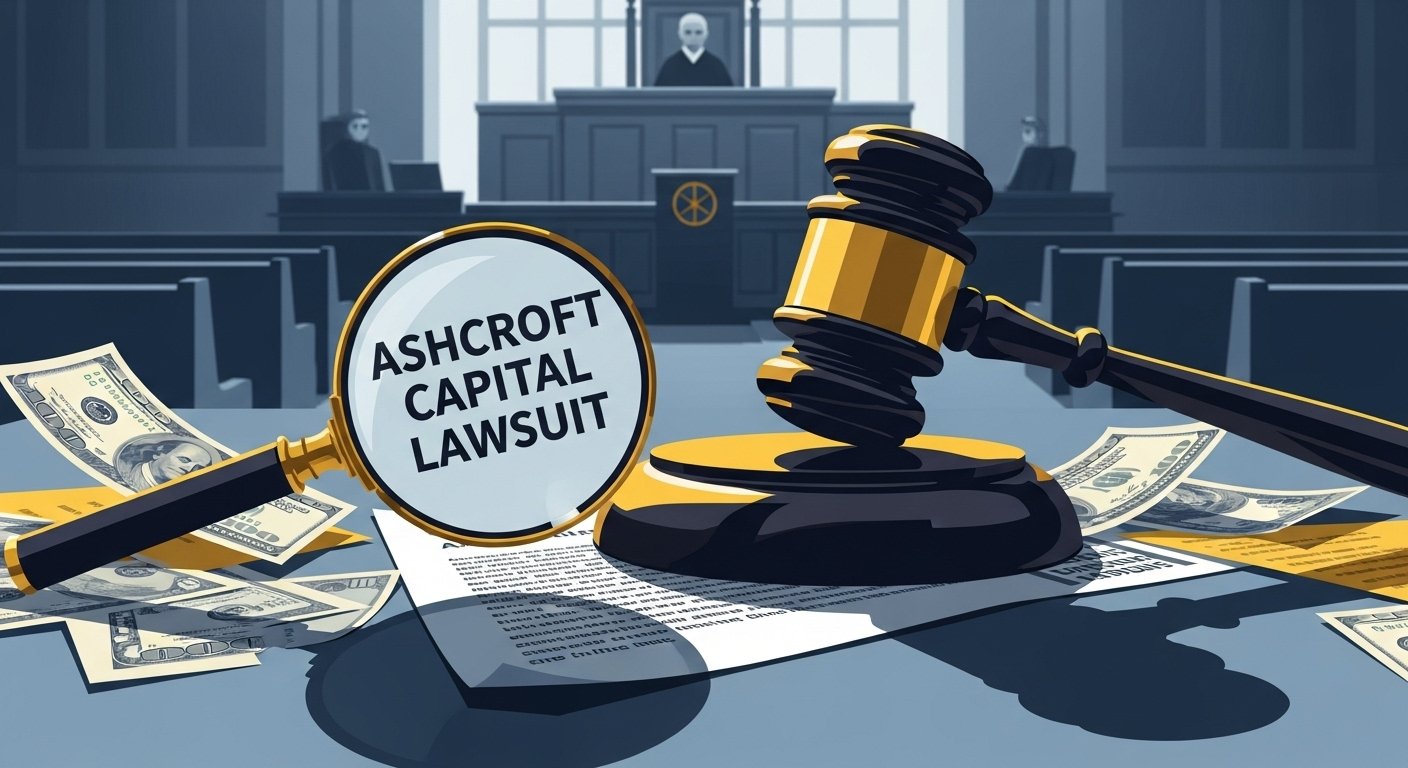Table of Contents
Introduction
If you’ve heard rumors about the Ashcroft Capital lawsuit, you’re probably wondering what actually happened. You’re not alone. Thousands of investors who followed Ashcroft Capital, a well-known real estate investment firm, are now asking questions about legal problems, property issues, and what this might mean for their money.
This article is a full, easy-to-understand guide to help you get clear answers. Whether you’re an investor, curious reader, or just someone trying to learn more about real estate, we’ll break everything down in a friendly and simple way.
By the end, you’ll understand what the Ashcroft Capital lawsuit involves, how it might impact investors like you, and what steps to take to protect your future investments.
Let’s get started.
What Is Ashcroft Capital?
Ashcroft Capital is a real estate investment company. It was co-founded by Joe Fairless and focuses mostly on buying and fixing up large apartment buildings. These properties are often older and need improvements. The idea is to make them better, fill them with tenants, and then sell for a profit.
This strategy is called multifamily real estate investing. It’s popular because it allows investors to earn steady income through rent payments and also grow their investment over time.
Ashcroft Capital attracts investors from across the country who want passive income. This means you invest your money and let the company do the hard work managing and renovating the properties. In return, you hope to receive monthly or quarterly payments and a larger payout when the building is sold.
But the recent news of a lawsuit has shaken trust in the company. That’s why many people are now searching for updates and facts surrounding the Ashcroft Capital lawsuit.
Why Is There an Ashcroft Capital Lawsuit?
The Ashcroft Capital lawsuit may have started because of concerns about how the company handled investor funds and rental properties. While full legal filings are not yet public, early reports suggest accusations of mismanagement, misleading expectations, and a lack of communication with investors.
Here are some of the key points being discussed:
- Promised returns were not delivered
- Financial reports may not match actual performance
- Tenants and buildings may not have been cared for properly
- Investors feel they were left in the dark
Whenever a lawsuit like this comes to light, it raises serious red flags. Especially because people put their trust and money into the company expecting excellent service and honest updates.
Still, it’s important to remember that just because a lawsuit is filed doesn’t mean someone is guilty. Investigations, legal reviews, and court decisions take time. But the Ashcroft Capital lawsuit is a red flag that investors can’t ignore.
Who Is Joe Fairless, and Why Does He Matter in This Lawsuit?
Joe Fairless is one of the co-founders of Ashcroft Capital. He is also a well-known figure in the real estate world. He hosts a popular podcast called Best Real Estate Investing Advice Ever. Many new investors have trusted Fairless because of his teaching style, experience, and public reputation.
Because his name is so closely tied to the company, people are wondering whether Joe Fairless is directly involved in the Ashcroft Capital lawsuit. So far, there is no official proof that he has personally done anything wrong. But when a lawsuit touches the entire company, leadership always gets attention.
Investors feel extra nervous because it’s hard to separate the brand of Ashcroft Capital from the public image of Joe Fairless. If more details show he was involved in anything misleading, it could further hurt the company’s trust level.
What Do Investors Stand to Lose?
The biggest concern with the Ashcroft Capital lawsuit is what it could mean for current and future investors.
Here’s what could go wrong:
- Investors might stop receiving monthly distributions
- Property values may drop due to poor maintenance
- The company may struggle to raise money for future deals
- Projects in progress may suffer or stall
- Investor trust in the firm may never fully recover
Investors in syndications already take on risk. But they usually trust that the management team will make smart choices, handle operations well, and communicate clearly. If that trust fades, investors are left feeling scared, unsure, and even trapped.
If the Ashcroft Capital lawsuit proves serious errors were made, it could affect payouts, deadlines, and growth across many ongoing real estate deals.
What Exactly Is Real Estate Syndication?
Ashcroft Capital uses a real estate investment model called syndication. It’s a way to let smaller investors pool their funds together to buy big properties, like apartment complexes. The company (called the “sponsor”) finds deals, manages the buildings, and handles all the work. The investors (called the “limited partners”) put in money and wait for returns.
This type of setup can work really well when done correctly. But when things go wrong, limited partners can’t do much. They don’t have power to remove managers, change daily operations, or sell the property early.
That’s why investors depend heavily on the sponsor to do the right things. If a lawsuit, like the Ashcroft Capital lawsuit, starts claiming that trust was broken, it makes syndications feel a lot less safe.
How Can You Check a Company Before Investing?
The Ashcroft Capital lawsuit reminds us why researching before investing is so important. Many people dive into investment deals because of excitement or strong marketing messages. But here are some smarter steps you can take to avoid making similar mistakes:
- Look at past performance: Has the company handled properties before successfully?
- Ask about team experience: Do leaders like Joe Fairless actually manage deals?
- Check investor reviews: What are other investors saying about their experience?
- Read the fine print: Understand the returns, fees, timelines, and exit options clearly
- Watch out for hype: Big promises often hide big risks
Doing these simple checks can go a long way in making sure you’re investing your money wisely.
Could Other Firms Face Similar Lawsuits?
Absolutely. The Ashcroft Capital lawsuit is part of a growing trend of legal troubles in real estate investing. As the economy shifts, and real estate prices change, many firms are feeling pressure.
It’s not just Ashcroft Capital. Several other real estate sponsors, funds, and syndication groups have faced recent lawsuits over:
- Poor project delivery
- Hidden fees
- Unrealistic ROI projections
- Lack of investor updates
- Bad tenant or property management
So what’s the main takeaway? Don’t trust companies just because of their reputation. Every investor needs to stay alert and ask the right questions, no matter how popular the firm or its leadership may be.
What Can You Do If You’re Invested in Ashcroft Capital?
If you’re already invested in a deal with Ashcroft Capital, you might be feeling stressed. That’s totally normal. But don’t panic. Here are a few practical things you can do:
- Log in to your Ashcroft investor portal and check for updates
- Contact their investor relations team and ask about the lawsuit
- Review your original deal documents and payout forecasts
- Talk to a financial advisor or attorney to understand your options
- Avoid further investments until the situation is resolved
The key is to stay calm but act wisely. You can’t undo the past, but you can make smarter choices moving forward.
What Are Common Investor Complaints About Ashcroft Capital?
Although many people have had good experiences with Ashcroft Capital in the past, recent complaints are catching attention. Some of the concerns related to the Ashcroft Capital lawsuit include:
- Not receiving on-time updates or distributions
- Unexpected changes in property plans
- Gaps between promised returns and real income
- Difficulty reaching the investor relations team
- General lack of transparency
While these issues might not mean fraud, they often signal poor management or careless communication. It’s possible that the Ashcroft Capital lawsuit will bring these concerns to light and lead to changes within the firm.
How Will This Lawsuit Affect the Future of Ashcroft Capital?

Companies that face lawsuits often experience slowdowns, canceled projects, or leadership shakeups. If the Ashcroft Capital lawsuit leads to serious findings, the firm may lose investors and take years to rebuild trust.
Here’s what could happen:
- Investors may stop putting money into future syndications
- Business partners may rethink their support
- Properties may be sold early or at lower value
- The brand’s reputation may suffer long-term
On the other hand, if Ashcroft Capital resolves the case successfully, updates its practices, and improves transparency, it may regain trust and continue to operate.
But the road ahead won’t be easy.
What Can Other Real Estate Sponsors Learn From This?
The Ashcroft Capital lawsuit offers a huge lesson for real estate firms everywhere. It shows that investors today demand honesty, strong communication, and real results—not just promises and fancy presentations.
Sponsors should:
- Overdeliver and underpromise
- Show clear updates and numbers
- Treat investors like partners, not customers
- Be ready for downturns instead of blaming the market
By sticking to these principles, real estate firms can avoid the mistakes that led to lawsuits like the one Ashcroft Capital is facing now.
Final Thoughts
The Ashcroft Capital lawsuit is more than a news story. It’s a powerful lesson about investing, trust, and knowing what you’re getting into. Real estate syndications can be a fantastic way to build wealth, but only if you’re careful.
Use this moment to review your own investing habits. Ask better questions. Do better research. And never ignore your gut feelings.
The real estate world is full of opportunity, but like anything in life, it comes with real risk. If something seems too good to be true, take a closer look.
And remember: you don’t have to invest with the biggest name in the game—just the most honest one.
FAQs
1. What is the Ashcroft Capital lawsuit about?
It involves claims about poor investor communication, missed returns, and possible mismanagement of real estate deals.
2. Who started the lawsuit against Ashcroft Capital?
Details are still unfolding, but it’s believed some investors or legal groups are behind the case.
3. Is my investment in Ashcroft Capital at risk?
If you’re a current investor, it depends on your specific deal. Check your portal and consult an advisor.
4. Can I still invest with Ashcroft Capital?
Yes, but it’s best to wait until the legal situation is clearer. Research and caution are key.
5. Has Joe Fairless been personally sued?
There is no public proof showing Joe Fairless is personally being charged right now.
6. What does this mean for the future of syndication investing?
This reminds us that syndications come with risk. Always do your research, even with big firms.
